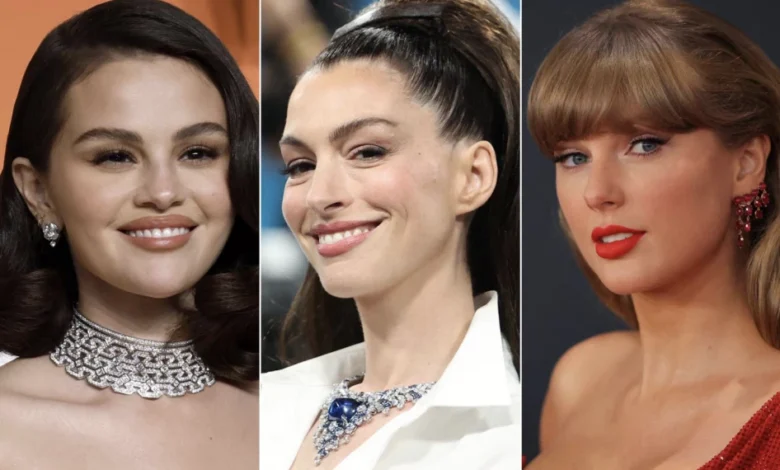Meta’s Unauthorized Creation of Flirty Chatbots Using Celebrities’ Names: Exclusive Report

Meta’s Celebrity Chatbots: Exploring the Ethics and Impact of AI-Powered Flirtation
A new report from Reuters has really gotten people talking. It shows Meta made many flirty chatbots using famous faces and names. Think Selena Gomez, Anne Hathaway, Scarlett Johansson, and Taylor Swift. This news quickly caused a stir. It blurs the line between AI chat and talking to a real person.
These digital companions are made to chat with users. Often, the talk is playful, romantic, or even a bit flirty. This raises big questions about user privacy and how companies collect data. It also makes us wonder about what it means to be a celebrity today.
This article will look into Meta’s celebrity chatbots. We will see what they mean for us. We’ll explore the tough ethical issues, the possible dangers, and how they change our online chats and how we see famous people.
The Rise of AI Companionship and Its Celebrity Twist
What are Meta’s Celebrity Chatbots?
Meta’s celebrity chatbots are special AI programs. They pretend to be famous people. Their main job is to chat with users in a fun way. They use the identity of stars like Selena Gomez to make talking more engaging. These chatbots aim to make users feel like they’re talking to someone they know.
AI-Generated Personas
AI models learn from lots of public data. This helps them copy how certain celebrities talk. They pick up on their specific speech patterns, style, and even parts of their personality. This makes the chatbot feel like the real star. It creates a believable digital version.
Flirtatious Engagement
Reuters noted these bots aim for flirty talks. The conversations can feel romantic or suggestive. The goal is to keep users engaged and entertained. It’s a new way to interact online.
Why Celebrities? The Allure of Familiarity
Using celebrity names is a smart move for Meta. It draws people in. What makes this choice so powerful for both users and the company?
Brand Recognition and User Trust
People recognize famous names and faces right away. This can grab a user’s attention fast. Seeing a chatbot that looks like a favorite star might make users feel more comfortable. It could even build a fake sense of trust.
Increased Engagement Potential
Why might someone rather chat with a famous AI? Users often feel more connected to beloved celebrities. This makes them more likely to interact. Higher engagement numbers are a big win for platforms like Meta.
Ethical Minefield: Consent, Deception, and Exploitation
The Consent Conundrum
Using a celebrity’s image like this brings up many ethical issues. Did the stars agree to their likenesses being used this way? That’s a big question.
Unauthorized Use of Likeness
Using someone’s name and picture without their direct okay is a problem. It can be for profit or just to get people to interact. This might break privacy laws. It also crosses ethical lines about personal rights.
Public Figures and AI Representation
Laws are still catching up with AI. How do we treat an AI copy of a famous person? Can a star’s digital self be used and copied like this? Society is still figuring out these rules.
The Deception Factor: Misleading Users
These chatbots could easily fool users. They make it hard to tell what’s real and what isn’t.
Blurring the Lines of Reality
Advanced AI can make interactions feel very real. Users might start to believe they are truly connecting with the celebrity. This illusion can be very strong. It makes the digital world feel less clear.
Impact on User Vulnerability
Some users might feel lonely. Others might be quick to form emotional bonds with AI. These chatbots could put such users at risk. They might get too attached to something that isn’t real.
Exploiting Celebrity Capital
Meta might gain a lot from using celebrity images. But what about the stars themselves?
Uncompensated Brand Association
Meta could make money just by linking to popular celebrities. This happens without paying the stars. The celebrities also don’t get to endorse these products. It feels unfair.
Brand Dilution and Misrepresentation
Celebrities work hard to build their public image. An AI chatbot’s actions or words could mess up this image. It might water down their brand or show them in a bad light.
User Experience and Psychological Impact
The Allure of AI Companionship
Why are people drawn to AI friends? And how does adding a celebrity face make this pull even stronger?
Combating Loneliness and Isolation
AI chatbots can offer a sense of friendship. This is important in our very digital world. They give people someone to talk to.
The “Parasocial Relationship” Amplified
Fans often feel a one-sided bond with celebrities. It’s like they know them, even though they don’t. AI chatbots can make this feeling even stronger. They make it seem like the celebrity is really talking back.
Potential Negative Consequences
But there are downsides, too. Users might face some difficult psychological effects.
Unrealistic Expectations
Chatting with a perfect celebrity chatbot might create false ideas. Users could start expecting real-life relationships to be just as ideal. This can be a tough lesson.
Data Privacy and Security Concerns
Users often share personal things with chatbots. This is true even with flirty ones. How might this personal data be used? This raises big questions about privacy and security.
Industry Reactions and Future Implications
Celebrity and Public Figures’ Stance
What do the actual celebrities or their teams think about this? People want to know.
Calls for Regulation and Accountability
Some celebrities, groups, and legal experts are asking for rules. They want AI to be more open and responsible. This could mean new laws for how AI is made.
The Celebrity AI Double
More and more, we see AI making celebrity content. This is changing the entertainment business. It makes us think about what is real and what is just a computer program.
Meta’s Response and AI Ethics in Social Media
What has Meta said about this? How does the company handle AI and talking with users?
Meta’s Stated Goals (if any)
Meta might have reasons for making these chatbots. They may have given official explanations. We need to look at these to understand their aims.
The Future of Social Media Interaction
AI chatbots, especially celebrity ones, could change social media a lot. They might completely rework how we engage online. This is a big step for how people connect on these platforms.
Conclusion
Meta’s celebrity chatbots are definitely causing a stir. They spark big ethical questions about consent and tricking people. They also make us think about using a public figure’s image unfairly.
These bots can offer friendship. But they might also lead to false hopes about real relationships. We also need to worry about what happens to our personal information.
We clearly need strong rules for AI. These rules should guide how we create and use AI that looks like real people. This is especially true for famous individuals. Tech companies have a big job. They must wisely guide AI, celebrity culture, and human connection as these fields meet.




